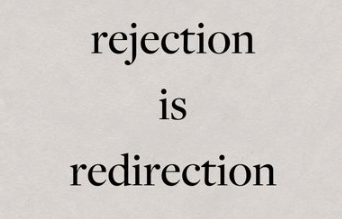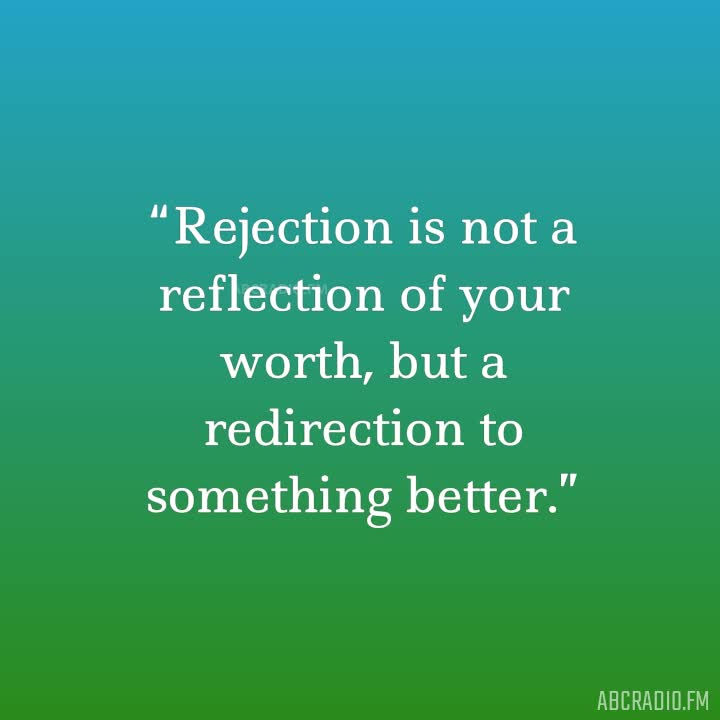by Christine Sande, LCMHC

Introduction
Rejection stings. Whether it's a job application turned down, a relationship ended, or a social invitation declined, the experience can leave us grappling with feelings of inadequacy. One of the most pervasive and damaging thoughts that often accompanies rejection is the belief that "I am not good enough." This blog delves into how rejection can fuel this negative cognition, the emotional consequences, and practical steps to overcome it.
Understanding the "I Am Not Good Enough" Cognition
The belief that "I am not good enough" is a deeply ingrained negative thought pattern. It can arise from various sources, such as childhood experiences, societal pressures, and repeated failures. As a therapist, I cannot tell you how many times I encounter clients believing this about themselves and the difficult therapeutic journey we embark on to change this cognition. As a person, an emotional female person at that, I cannot tell you how many times I have said this about myself. Whether I felt that I was not good enough as a friend, mother, partner, or even as a therapist. When rejection occurs, it often reinforces this negative self-perception, making it more challenging to shake off.
The Connection Between Rejection and Self-Worth
Rejection can significantly impact our self-worth, particularly if we already harbor doubts about our abilities or value. When faced with rejection, it’s easy to internalize the experience and see it as a confirmation of our perceived inadequacies. This can lead to a vicious cycle where each new rejection further entrenches the belief that we are not good enough.
Emotional Consequences
Immediate Emotional Impact
The immediate aftermath of rejection can be intense. Feelings of sadness, disappointment, and frustration are common. However, when coupled with the belief that we are not good enough, these feelings can quickly escalate into deeper emotional turmoil. Many people experience a surge of anxiety, worrying about what they did wrong or how they could have been better. This anxious overthinking can lead to a sense of paralysis, making it difficult to move forward.
Long-term Emotional Impact
Persistently believing that you are not good enough can lead to chronic low self-esteem, anxiety, and depression. This belief can create a pervasive sense of hopelessness and helplessness, where individuals feel they will never measure up no matter what they do. The fear of further rejection can become so overwhelming that it prevents personal growth and opportunities. People might withdraw socially, avoiding relationships and new experiences to protect themselves from potential pain. Over time, this isolation can deepen feelings of loneliness and depression, making it even harder to break free from the cycle of negativity.
The Paralyzing Fear of Rejection

The fear of rejection can be paralyzing, preventing individuals from stepping out of their comfort zones and pursuing new opportunities. This fear often stems from the anticipation of the pain and disappointment associated with rejection. As a result, people may avoid situations where they could potentially be rejected, such as applying for a new job, asking someone out, or even voicing their opinions. This avoidance behavior reinforces the "I am not good enough" cognition, as it limits experiences that could challenge and disprove this belief. Overcoming the fear of rejection involves recognizing that rejection is a natural part of life and that each experience can be a valuable lesson rather than a personal failure.
Breaking the Cycle: Strategies to Overcome the "I Am Not Good Enough" Cognition
Recognize and Challenge Negative Thoughts
The first step in overcoming the "I am not good enough" belief is to recognize when you are having these thoughts. Once identified, challenge them. Ask yourself if there is evidence to support these beliefs or if they are simply assumptions. Often, our negative self-perceptions are not grounded in reality.
Reframe the Narrative
Reframe how you view rejection. Instead of seeing it as a reflection of your worth, consider it a part of the learning process. Each rejection can provide valuable feedback and opportunities for growth. By shifting your perspective, you can start to see rejection as a stepping stone rather than a stumbling block.
Practice Self-compassion
Be kind to yourself. Understand that rejection is a universal experience and does not diminish your value. Practice self-compassion by treating yourself with the same kindness and understanding that you would offer to a friend facing rejection.
Build a Support Network
Surround yourself with supportive people who can provide perspective and encouragement. Sharing your feelings with friends, family, or a therapist can help you process the rejection and reinforce a more positive self-image.
Set Realistic Goals and Celebrate Small Wins

Set achievable goals and celebrate your progress, no matter how small. Recognizing your accomplishments can help build your self-esteem and counteract the belief that you are not good enough. Focus on what you have achieved rather than what you haven't.
Moving Forward: Embracing Growth and Resilience
Overcoming the "I am not good enough" cognition is a journey. It requires patience, self-reflection, and resilience. Remember that rejection is a part of life and does not define your worth. By challenging negative thoughts, practicing self-compassion, and seeking support, you can break the cycle and build a stronger, more positive self-image.
Practice Acceptance
Practicing acceptance is crucial. Accept that you cannot control others—their thoughts, feelings, or actions. What you can control is yourself, how you react, and how you allow certain things to affect you. This shift in focus from external validation to internal control can significantly alleviate the emotional burden of rejection.
Personal Experience with Rejection
Personally, in the past, I have used rejection as an opportunity for growth. I have used it as fuel to ignite a change in me. I have used rejection to apply self-reflection and recognize areas I could improve in and make changes. I have allowed rejection to become an opportunity to challenge me to try to tackle endeavors that I felt I was not good enough for or that I felt were impossible. This perspective has empowered me to transform rejection into a catalyst for personal and professional growth.

Conclusion
Rejection is an inevitable part of life, but it doesn't have to define you. The belief that "I am not good enough" is a powerful and destructive thought that can be challenged and overcome. By understanding the connection between rejection and self-worth, practicing acceptance, and implementing strategies to counteract negative thoughts, you can navigate rejection with resilience and emerge stronger. Remember, every rejection is not an end, but an opportunity for growth and self-improvement. Through self-compassion, acceptance, and support, you can transform rejection into a powerful force for positive change and personal development.

Comments